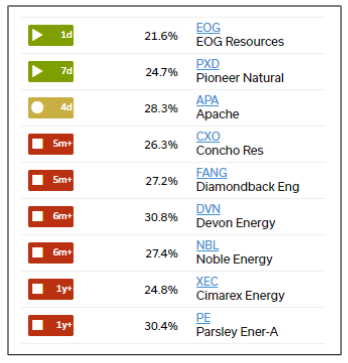On Wall Street and elsewhere, there is something called the “Winner’s Curse.” The winner’s curse applies when the winner of a bidding contest pays too much for an asset.
This happens because, as a result of competitive bidding, the price required to win goes higher (sometimes much higher) than what the asset is worth. The winner thus gets the “curse” of paying too much for whatever they are buying.
You don’t even have to be irrational to suffer from the winner’s curse. Sometimes it is just a function of uncertainty. If nobody knows the true value of an asset, there will be a range of estimates and offers.
When this happens the most accurate estimation is probably, on average, going to be somewhere in the middle of the range. That means the bid at the top of the range — the winning one — is likely too high.
“It’s a mechanical problem, not an emotional one,” says Cal-Tech economist and auction theory expert Charles Plott. “In any auction, the person who’s unlucky enough to place the highest value on an item is the person who’s going to win. No one’s being irrational. It’s just that the winner is likely to be wrong.”
As an individual stock investor, you want to avoid the winner’s curse if you can. But there are ways you can profit from the winner’s curse by getting on the right side of it.
For example, in high-profile takeover battles, you generally want to own the takeover candidates being bought, not the companies doing the buying
Sometimes, when the winner’s curse comes into play through a merger or an acquisition, everyone does well except the shareholders in the company that “won” the bidding contest.
That is just what happened with the Occidental Petroleum takeover of Anadarko Petroleum, the biggest energy merger in decades (since Exxon bought Mobil to become ExxonMobil).
It is ironic, because the term “Winner’s Curse” originated in the oil and gas business in the first place. It was notably used by an oil-industry journal in 1971, in a study that documented the habit of bidders overpaying for oil and gas assets in the Gulf of Mexico.
With Occidental’s ginormous takeover of Anadarko, which will cost about $57 billion including debt and is, again, the biggest energy deal in decades, almost everyone is happy:
- The Occidental CEO is happy because the size of her shale empire will double.
- Warren Buffett is happy because Berkshire Hathaway provided $10 billion worth of financing for the deal on extremely lucrative terms — the rough equivalent of a corporate payday loan — with protected downside and a free upside kicker.
- Anadarko shareholders are happy because, as a result of the bidding war between Chevron and Occidental, with Anadarko as the takeover target, Anadarko’s stock price shot up more than 50%.
- Chevron shareholders are happy because their CEO showed the discipline to walk away from the Anadarko deal, rather than trying to top Occidental’s huge bid.
The only ones made miserable in this deal are the Occidental shareholders, because OXY was hit with the winner’s curse here in a very big way.
- Occidental will have a $50 billion debt load as a result of the deal — and will potentially have more debt than market cap after the deal is done, even with Anadarko’s assets factored in.
- The financing from Buffett is incredibly expensive (guaranteed 8% interest, for at least a decade, in an era of super-low interest rates) and Buffett gets a risk-free option on 80 million additional shares besides.
- It isn’t even clear, at this point, that the cash flow from Anadarko’s shale assets will cover the cost of the financing Occidental is taking on.
The CEO is very optimistic (of course), but Occidental is taking a huge gamble. If the synergies don’t come through or the oil market goes into decline, the deal could prove disastrous for OXY.
Warren Buffett, in contrast, is taking almost no gamble at all, because he has the corporate equivalent of a house deed and car title backing up his juicy loan. (It’s good to be a billionaire financier.)
As a result of all this, it’s no surprise that OXY shares hit 10-year lows on news that Occidental “won” the Anadarko bidding war. The shares are down more than 20% since the takeover maneuvering started. Behold the winner’s curse in action!
When it comes to the winner’s curse, the simplest piece of advice for individual stock investors is this: Avoid companies where the CEO has visions of glory that include expanding their empire with dangerous amounts of debt. Some industries — like oil and gas and mining for example — are notorious for ill-conceived deals that destroy shareholder value.
A more sophisticated way to benefit from the Winner’s Curse is to keep an eye on industries where merger mania is on the rise — and then look to invest in the potential takeover targets.
When a small- to medium-sized company is gobbled up by a larger company, a bidding war often breaks out. This is good for shares in the takeover target (as shown with Anadarko’s 50% share price jump).
In the shale patch specifically, more merger mania could be afoot. Having lost its intended prize, Chevron (the original bidder for Anadarko) may decide to snap up some other small- to medium-sized shale player. Other big league energy CEOs, jealous of Occidental’s power play, may also want in on the game.
 |
Above is a list of possible takeover candidates with significant presence in the Permian Basin (the west Texas hotbed of American shale oil production, where 4.1 million barrels of crude were produced in April 2019 alone).
You can use TradeStops to compile watchlists like this in industries where merger mania is brewing.





